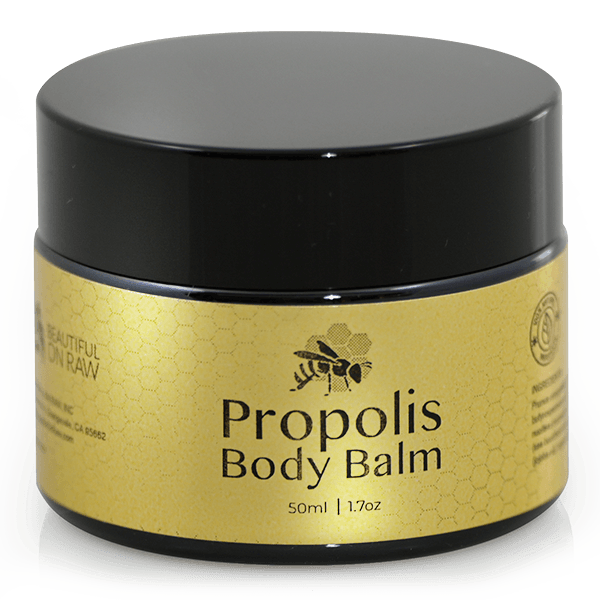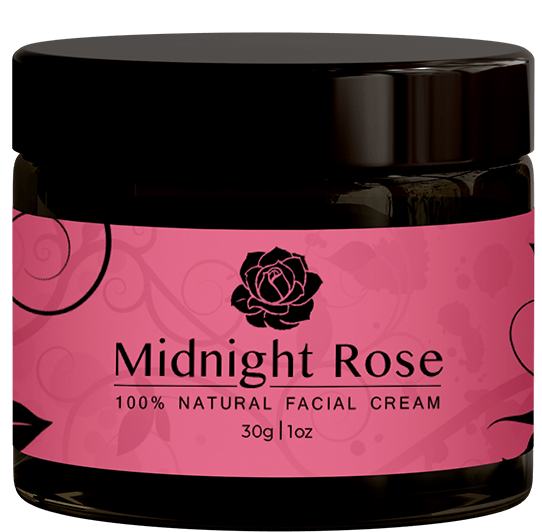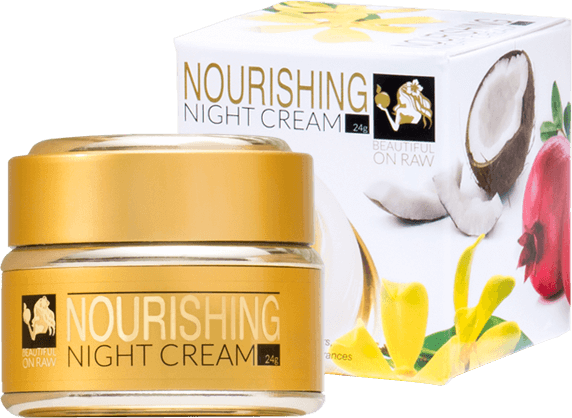Anti-Aging Night Cream

In my book Quantum Eating I present abundant scientific research on how not eating in the late afternoon or later will give you ideal weight, youthful energy and put a powerful break on the aging process. Not eating at night gives our digestive system a chance to rest, letting our whole body use the available energy for regeneration, damage repair, and cleanup in all its nooks and crannies. But there’s one organ I encourage you to feed at night—your skin.
The night is your skin’s scheduled repair time. Your skin works hard all day, protecting you from dust, pollution, microorganisms and ultraviolet radiation. To keep up with those tasks the next day, skin depends on a good night’s worth of recharging. Here’s what happens to our skin while we sleep…
Hormones run the show.
During waking hours, our body produces stress hormones, such as adrenaline and cortisol, that help us deal with life situations when we’re awake. As it gets darker, our circadian rhythms prompt the body to start producing melatonin, responsible for causing drowsiness as well as lowering body temperature in preparation for rest. According to a 2005 article published in Endocrine Journal,
[M]elatonin is also able to suppress ultraviolet (UV)-induced damage to skin cells and shows strong antioxidant activity in UV exposed cells. Hence, melatonin…could counteract or buffer external (environmental) or internal stresses to preserve the biological integrity of the organ and to maintain its homeostasis.
With the decreased daytime stimulation, the levels of stress hormones drop. Once we reach deep sleep, the body starts releasing human growth hormone (HGH), indispensable for growth, repair and regeneration in our bodies.
Skin regeneration rate increases.
Our skin, like all other organs, constantly makes new cells via division, while discarding dead cells from its surface. Cell division happens constantly. But it happens at different rates over the 24-hour day—the skin itself, like any organ, is subject to circadian rhythms. Alex Khadavi, MD, associate professor of dermatology at the University of Southern California, points out that skin cells regenerate faster at night than during the day: “Skin cells do their repair work most effectively at night… skin cell regeneration almost doubles at night, peaking between 23:00 and 04:00.”
Skin surface temperature increases.
Just as skin cell regeneration increases during the night, so does skin surface temperature. This happens because the body is starting to cool itself in preparation for sleep. This it does so by sending blood away from the core and outward to the periphery. Higher temperature increases the skin’s own metabolic processes in the skin, and the breakdown of proteins slows, allowing the body to repair damage and to regenerate new cells.
Skin becomes dryer at night.
Transepidermal water loss is highest in the evening and night, according to an October 1998 article in the Journal of Investigative Dermatology. Trans-epidermal water loss (TEWL) is a measure of the amount of water moving from inside the body through the epidermal layer of the skin out to the surrounding atmosphere via two processes: evaporation and diffusion. This finding prompts many skin care experts to recommend running the humidifier at night, where you sleep, to counter skin dryness.
Higher nighttime skin absorbency.
According to the article just mentioned above, the permeability of the skin is higher during the night hours.
Collagen production rises at night.
Collagen, a chief protein in skin tissue, gives skin its elasticity, maintains its suppleness, and helps resist wrinkles and fine lines. The growth hormone produced during your sleep increases the production of this mainstay skin protein. But cheat on your sleep, and the stress hormone cortisol will wreak havoc on the collagen instead.
Nighttime is perfect for your skin treatments.
Knowing all this, wouldn’t it be silly not to use that knowledge to your skin’s advantage? A good night-time moisturizing cream will prevent your skin’s drying out at night, attracting moisture and preventing water from leaving the skin. At night, the active ingredients in the nourishing cream will be spared the damage they would otherwise incur from sunlight, and will be delivered more efficiently to your skin cells thanks to your nighttime higher skin temperature and increased absorbency.
Night is the time to feed your skin and help maintain its supple smoothness. So, as night nears, don’t look in the fridge! Look instead on your bathroom counter for your Night Cream. Hit the pillow early, day after day. Help your skin be the best it can be, making you look healthy and youthful for years to come.



